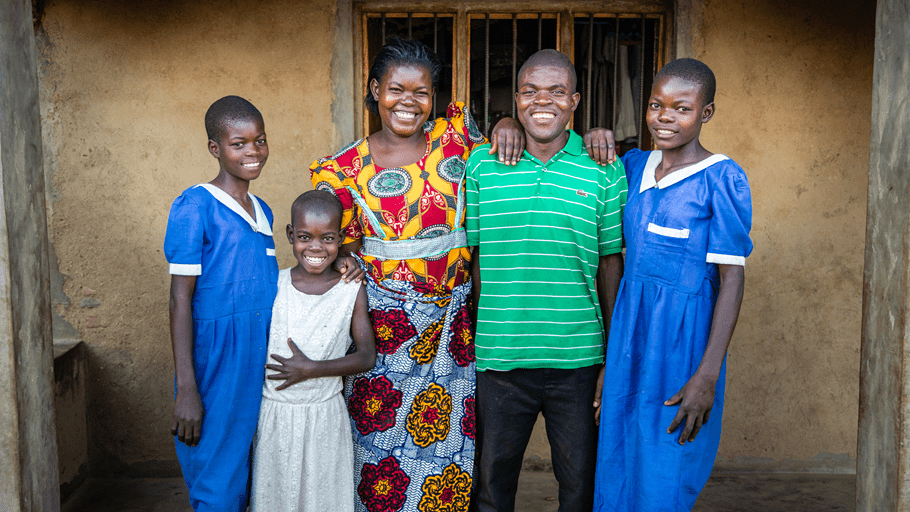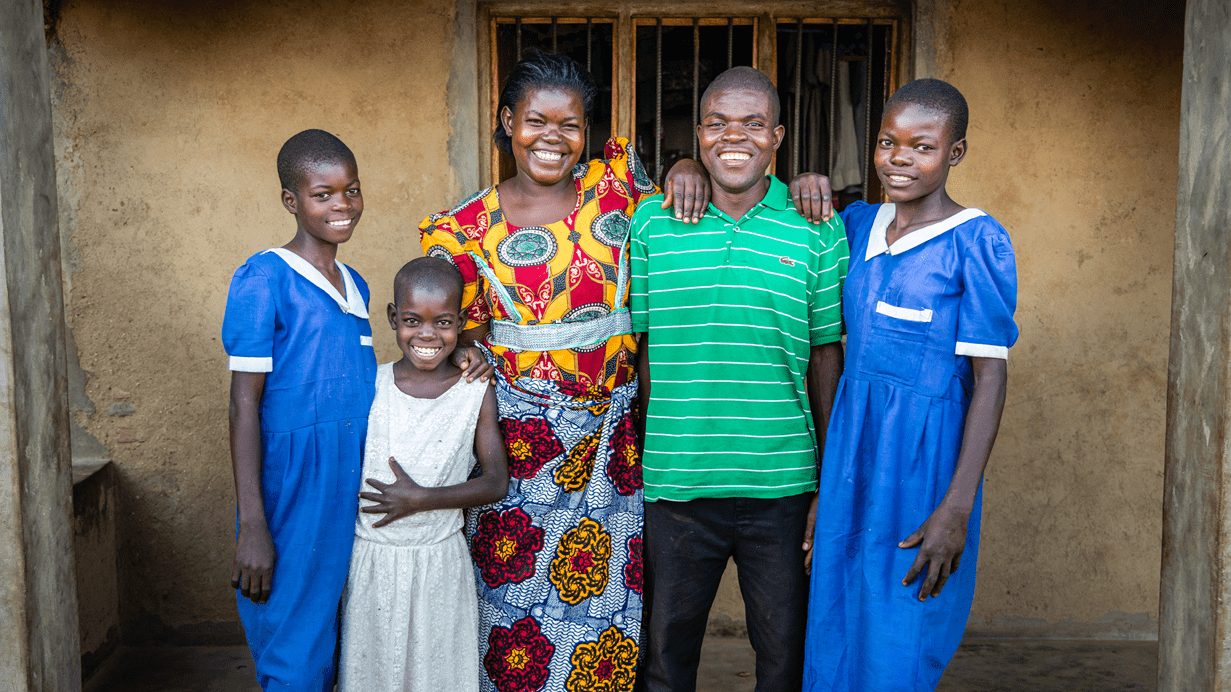Addressing sexual and gender-based violence (SGBV) in Malawi by pulling up the roots of sexual exploitation. These ‘roots’ include harmful religious and cultural beliefs around gender identity, economic inequality, and a lack of understanding and poor access to sexual health and justice services. By engaging with faith and community leaders, social norms on gender and sexual exploitation will be challenged and individual change will be enabled.
Kings and girls
When a boy is born in rural Malawi, you will hear loud nthugururu (ululation) emanating from the room where the child was born. The birth attendants are overjoyed because a boy is the owner of the land; they are like a king. But when a girl is born there is no loud celebration. No herald announcing their birth. There is only the sombre acknowledgement that mwanakazi munyithu wababika; a fellow woman has been born.
In rural Malawi, gender discrimination begins at birth, but it never really ends. In every stage of life, women are seen as inferior and subordinate to men and SGBV is an accepted part of life.
Malawi ranks a low 145/188 on the Gender Inequality Index, reflecting the fact that for women there are high levels of inequality and violence throughout every sphere of life. According to UNICEF, 65 per cent of all girls experience child abuse. Of those that are enrolled in school, only 29 per cent will complete their primary education, dropping out because their parents have other plans for them. Nearly half will be married before they are 18, often to older men, and sometimes given to pay off family debts. 29 per cent of adolescent girls (15-19) will bear children and get an early start on lives of domestic subjugation under their husband-kings.
From complete economic dependence to unequal household responsibilities; from beliefs that a man with HIV can rape a virgin to cleanse himself, through to beating your wife is a loving way to correct her; from practices such as polygamy to seizing land from widows; Malawi is a difficult place to live as a woman. In a recent survey, half of all respondents maintained that most or all young men in their districts sometimes pressure or force young women to have sexual relations.
In the last twelve months, a quarter of all women in Malawi will have experienced intimate partner violence. It is just the norm here for girls and women to suffer at the hands of men.
The time has come to change the status quo
“… hold a fast on my behalf, and do not eat or drink for three days, night or day.
I and my young women will also fast as you do.
Then I will go to the king, though it is against the law, and if I perish, I perish.”
(Esther 4:16)
The COVID-19 pandemic is compounding the problems experienced by women in Malawi. A state of disaster was declared on March 20th, though for the women in Malawi it has very different repercussions, and they are experiencing a wave of sexual violence. Cases of SGBV have increased, and with the indefinite closure of schools and increased poverty, child marriage has almost doubled in parts of Malawi (according to figures from a national helpline). And as health facilities and mobile clinics have also suspended their operations, access to sexual and reproductive health services, which was already limited, has decreased further. In East Africa, 92 per cent of working women are employed in the informal sector, heightening the risks they face of sexual exploitation and abuse due to economic vulnerability.
We are implementing this project “because the impact of SGBV is devastating for survivors and their communities. Physical injuries, unwanted pregnancies, fistulae, sexually transmitted infections including HIV, and death are among the most likely consequences of such senseless violence. Survivors often face social rejection that increases their vulnerability to further abuse and exploitation. Other survivors live with psychological trauma for years without getting any meaningful psychosocial support to remain productive citizens.” (Jonathan Vumu Executive Director of LISAP) - It’s time for this senseless violence to end
Ending the senseless violence
Changing culture, changing attitudes, changing hearts in Malawi around gender equality and SGBV is no small ambition. It is attempted with bent knees and desperate courage. But it can’t be attempted by the bruised women of Malawi alone. Tearfund’s partner, the Central Church of Africa Livingstonia Synod AIDS Control Programme (LISAP), will work with the local church to empower girls and women to respond to sexual gender-based violence by tackling economic hurdles, beliefs and social norms that perpetuate the practice. But we need you to fund this work.
- Community facilitators (men and women) will be trained to respond to SGBV incidents and community leaders will be trained in Tearfund’s ‘Transforming Masculinities’ and ‘Journey of Healing’ tools to create community-based protection networks. This will include the training of ‘Gender Champions’ - men and women who volunteer within communities to lead and facilitate change concerning gender norms, gender equality and the role of faith. It also creates space for survivors of SGBV to share their stories without stigma in peer support groups, and to speak out against the abuse perpetrated against them. This will ensure that communities are orientated to value women and that those who have suffered from SGBV are appropriately cared for.
- Community action groups (community policing forum, child protection committees, self-help groups, church consortiums, mother buddies, and mother groups) will be trained and supported to prevent and respond to SGBV incidents, and four counsellors will be trained to provide psychosocial support to victims of domestic abuse. The strengthened capacity and understanding of community groups will reduce the number of SGBV incidents and ensure a robust response is made when they take place.
- Community SGBV sensitisation meetings will be held targeting men, and role models will be identified to lead attitude change in the community.
- SGBV advocacy meetings will be held targeting community duty bearers, judiciary and police officers. Police officers with support given to police following up SGBV cases in their communities, community by-laws will be established to combat child marriage, and a mobile legal clinic will be supported to address SGBV issues in hard to reach areas. These measures will ensure that perpetrators and victims alike are assured that justice will be served.
- Women will be empowered economically through Self Help Groups. By reducing gender inequality, both in terms of economics and agency, vulnerability to SGBV will also be diminished.


Kapu and his wife Adaliya with their three daughters. What will their future look like?
We’d love to chat with you more about this opportunity. Please get in touch!
A note on coronavirus
COVID-19 is still having a huge impact and has affected our partners' work across the world. We are hoping to implement this work as planned but would ask for your patience and understanding if future restrictions affect some of the activities.
Share this page
Share this page to spread the word and help support those in need.

Get our email updates
Learn about our work and stay in touch with Tearfund. Hear about our news, activities and appeals by email.
Sign up now - Get our email updates


